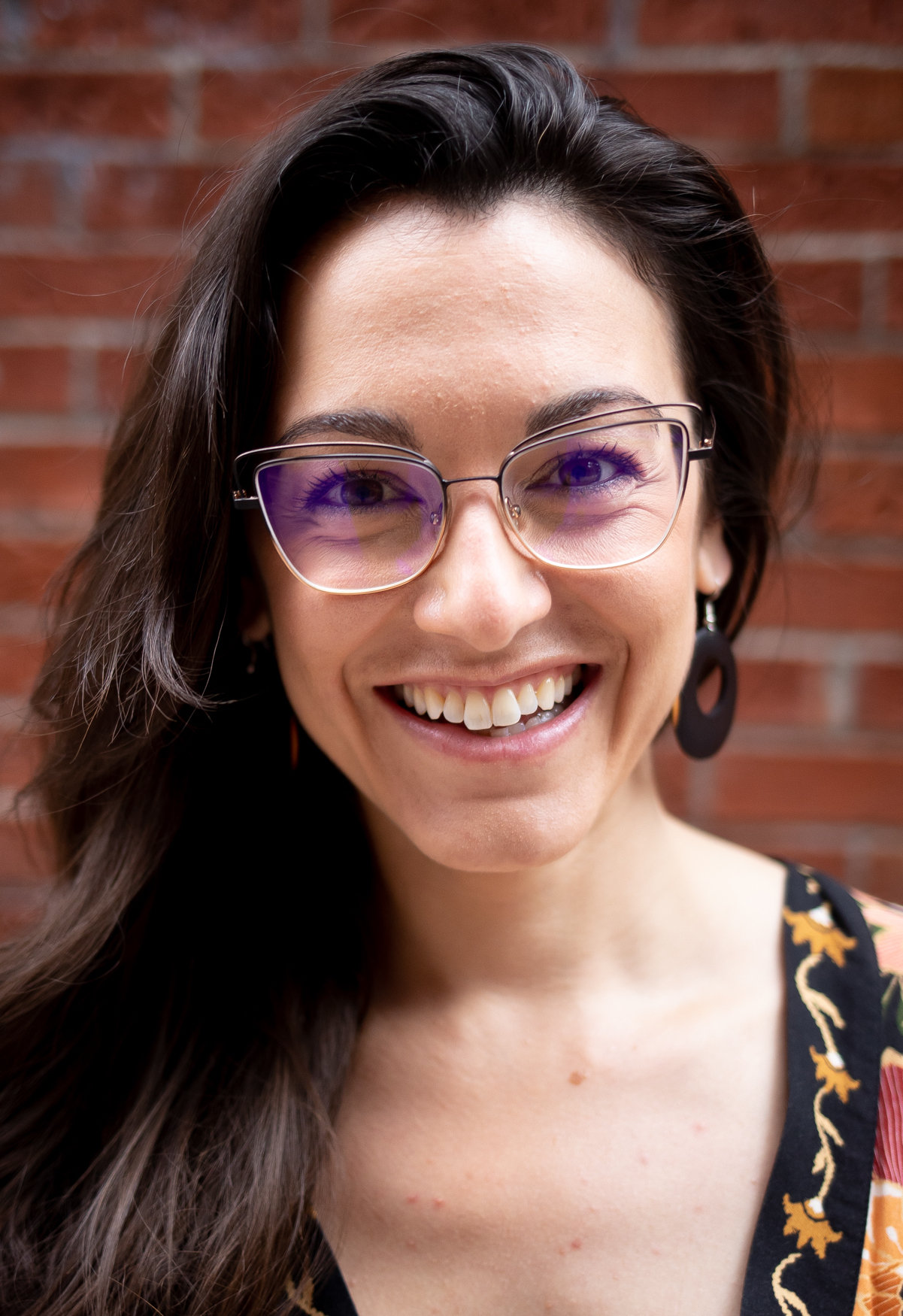Caroline Marcoux-Gendron

"It is a recognition that moves me deeply, knowing that the leap into urban studies was initially rather ambitious for me, as my background is in musicology (bachelor’s degree) and ethnomusicology (master’s degree). I also see it as an encouragement to pursue my work in an interdisciplinary approach, by bringing together the sociology of culture and migration studies."
Caroline Marcoux-Gendron
Ph.D. in Urban Studies, 2021
Centre Urbanisation Culture Société | Supervisor: Guy Bellavance
Caroline Marcoux-Gendron’s work deals with music as a vector of socialization among immigrants in an urban context. More specifically, this research project focuses on the way in which the relationship to music of people born in the Maghreb and living in Montréal feeds their relationship to the social world over the course of their lives, and thus constitutes an original contribution on both scientific and social levels. It provides food for thought for cultural institutions and organizations that are increasingly seeking to act on issues related to cultural diversity.
What brought you to INRS? What do you retain from your experience?
First of all, I wanted to work with the cultural sociologist Guy Bellavance who was my director. Then, very few university departments bring together, as UCS (Urbanisation Culture Société) does, both specialists in cultural and migratory issues, which are at the heart of my doctoral thesis. Thus, at UCS-INRS, there was a set of resources that I was able to benefit from and make the most of, for example, by getting involved both in the Midis de l'immigration, where I had the chance to present my work twice during my doctorate, and in the activities of the Fernand-Dumont Chair on culture with its series of Midis-conférences. In short, INRS has given me many opportunities to develop as a young researcher.
Can you describe the challenge and impact of the research presented in your doctoral thesis?
My thesis deals with music as a vector of socialisation among immigrants in an urban context. More specifically, it looks at how the relationship to music of people born in the Maghreb and living in Montreal feeds their relationship to the social world over the course of their lives.
It is a thesis that brings together the themes of culture and immigration that are at the heart of urban studies, but which rarely interact in such a frank manner. It is thus an original contribution on both scientific and social levels. Firstly, this work proposes a conceptual and theoretical framework that allows a fine-tuned approach to the cultural tastes and practices of people in an immigrant situation, which have been little considered by the sociology of culture to date. Then, from the point of view of migration studies, this thesis shows that arts and culture are powerful tools to grasp the complex logics of a life in migration, whether on the symbolic level of the feeling of belonging or on the more concrete level of intercultural and interethnic interactions in an immigrant context. On this account, this work stands out within a corpus where the social, economic, professional, political and even religious dimensions of the lives of immigrants are much more studied than artistic and cultural issues. Finally, this thesis sheds light on the dynamics and transformations of the Montreal cultural ecosystem induced by recent immigration. It also provides food for thought for cultural institutions and organizations that are increasingly seeking to act on issues related to cultural diversity.
What does winning this prize mean to you?
It is a mark of recognition that touches me very much, knowing that the leap into urban studies was initially rather ambitious for me, as my background is in musicology (bachelor's degree) and ethnomusicology (master's degree). I also see it as an encouragement to pursue my work in an interdisciplinary approach, by bringing together the sociology of culture and migration studies.
What is the next chapter for you, now that you have graduated?
First of all, I hope to publish my thesis soon in one of the collections of the Fernand-Dumont Chair on culture. I also plan to continue my research at the intersection of musical and migratory issues, while returning to the theme of my master's thesis, namely the careers of migrant artists and the professionalization issues that these people face.
meet our award-winning graduates
